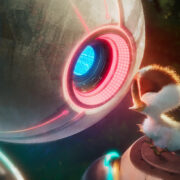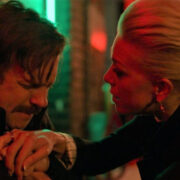THE CHAPERONE: The More Things Change, The More Things Stay the Same
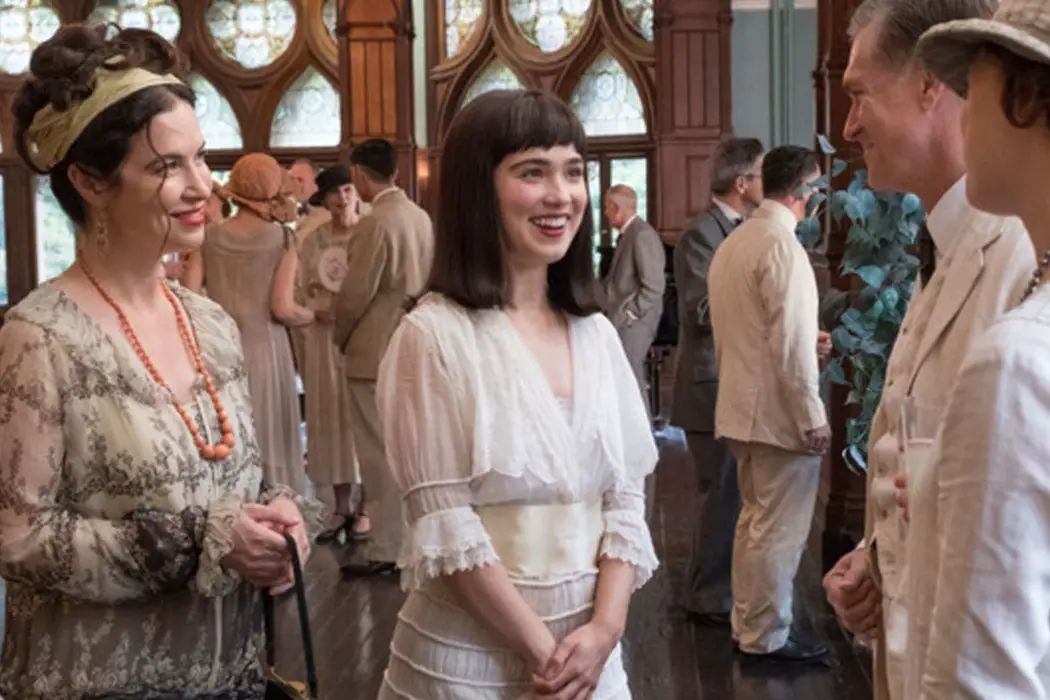
Alex is a 28 year-old West Australian who has a…
In the midst of an awkward silence upon the mahogany-coated carriage bound for New York, Louise Brooks indifferently mentions that she finds “historical fiction boring”, which springs forth an inquiring quandary; is she talking about the book that her titular partner, The Chaperone, is reading, or the lousy film that they’re both trapped in? This might also be a playful gag, as The Chaperone has been adapted from Laura Moriarty’s 2012 novel of the same name, a semi-fictional account of the early life of silent film and fashion icon Louise Brooks, depicting her youthful beginnings as a prodigious dancer before G. W. Pabst made her a star with Pandora’s Box.
It’s a shame that this isn’t actually Brooks’ story – no, director Michael Engler and writer Julian Fellowes, two of the creative minds behind Downton Abbey (both the show and the upcoming film), choose to forge a contradictory coming of age journey; it’s not so much that the characters have to grow, it’s that the times themselves have to catch-up to the progressive ideals of its central female characters – and judging by today’s political climate, it seems they’ll still be waiting.
The Times Are Changing
It’s 1922, and according to the 15 year-old Brooks (a bubbly Haley Lu Richardson), “things have changed”. This is definitely true through the eyes of her chaperone, Norma (Elizabeth McGovern), who has taken the gig of accompanying the rebellious teenager to New York, where she is to perform in a reputable dance academy, lead by British period drama mainstay Miranda Otto (another forgotten element).
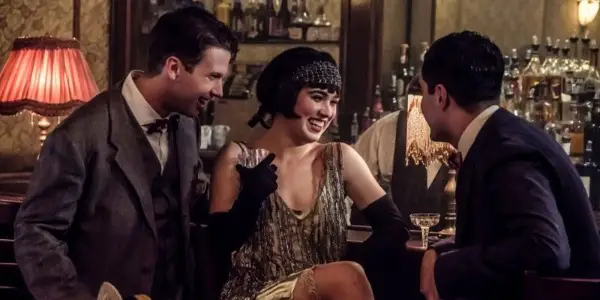
Every defiant quip or liberal use of language by Brooks is matched by Norma’s steely stare, whose old school values are seriously challenged by her new travel partner and destination. A series of lavender-soaked flashbacks detail the source of Norma’s newfound disaffection (a distinguished Campbell Scott plays her husband at home, who heralds a socially-unacceptable secret), as she scours the Big Apple for the Orphanage she came from, desperate to meet the mother who deserted her when she was an infant.
Nuggets of interesting plot threads are introduced; both ladies confronting past traumas and refusing to be viewed as victims is a progressive stance, but this is the only real thematic link between the two stories. Norma’s historical odyssey into her past quickly overtakes the film in general, relegating Brooks’ story into an underdeveloped sub-plot that feels like if Suspiria was played straight.
A particular hiccup in her rediscovery has her meeting Joseph, a German janitor (Géza Röhrig, last seen in Son of Saul), and the two develop a romantic affair. There’s a general tenderness to Röhrig, his humane facial features were expertly used in Son of Saul’s tight close-ups, and Nick Remy Matthew’s camera (his fingers lubricated from the vaseline he smeared the lens in), understands this, which makes his obvious ADR-ing all the more distracting.
Superficial Sketches
In fact, Röhrig’s obvious dubbing (which reaches Tommy Wiseau/The Room levels at times) is just the tip of the iceberg of The Chaperone’s blatant technical sloppiness. Whilst the period details are correct – despite it feeling freshly delivered from a costume store, as opposed to real, lived in sets – there’s a real slapdash quality to it all, seemingly rushed out before Engler’s Downton Abbey feature hits later this year.
There’s a crucial flashback sequence between Campbell Scott and Elizabeth McGovern where the colour timing switches constantly without reason – which is something that was done as a gag in Freddy Got Fingered – and there’s zero rhyme or reason as to their placement within the narrative either. It feels cheap, and it’s shocking that this got such a wide theatrical release – it’s got televisual qualities, in both it’s flat aesthetics and its nonchalant, apathetic approach to the material, that I’m not sure why this wasn’t just extended into a BBC miniseries and dumped onto British flat-screens (Yes, it is a PBS production, but they’ve done better in the past).
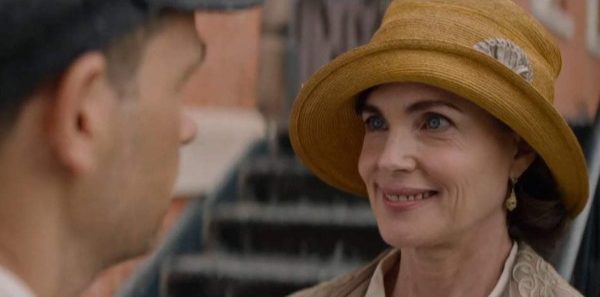
It’s frustrating because a story featuring Louise Brooks has so much potential, and when a third-act flash forward to the future has Norma sternly tell the aged actor that “she changed things” and “every female copied her”, it’s hard to exactly understand why. Zero contextual evidence is given, both in personality and social relevance, as to what Brooks’ appeal was to people, and why her bob hairstyle was such a sensation – here it’s treated like a cute Easter egg, similar to when a Marvel film drops a character reference that has the comic book aficionados elbowing each other in the cinema aisles.
Nothing is learned, both by the characters or our understanding of them, and choices are never articulated on a thematic or moral level, this is just some gentle, forgettable and frankly irrelevant fodder for senior audiences who feel that the Avengers: Endgame might be too long and loud for them, and for that option, The Chaperone at least succeeds in giving them that.
The Chaperone: Conclusion
The Chaperone is a film that’ll be gone and abandoned by the month’s end, swallowed by the studio system and virtually erased by this year’s loaded summer season. Films like this have a general necessity in providing alternative options for certain demographics, but it helps if they’re attempting to do something; whether it be comedic or dramatic, but this little picture fails at both, and at best reminds us that Haley Lu Richardson is on the verge of a (well-deserved) career breakthroug. When that happens, I doubt she’ll even remember starring in this. Hell, I’ve already forgotten myself.
What are some of your favourite historical fiction films? Let us know in the comments!
The Chaperone is currently playing in select US and Australian cinemas, with a UK release to be announced.
Does content like this matter to you?
Become a Member and support film journalism. Unlock access to all of Film Inquiry`s great articles. Join a community of like-minded readers who are passionate about cinema - get access to our private members Network, give back to independent filmmakers, and more.



